Living as we do in a perfect meritocracy, we can conclude that the extremely wealthy must be particularly intelligent, insightful, and wise, and that any apparent flaw in their brilliant schemes must be entirely because said schemes are too transcendent for mere peons to grasp. As a noted philosopher once observed, were he wealthy “they would ask me to advise them like a Solomon the Wise.” When we remember, or observe, the results of the Darien Scheme, Enron’s rise to financial eminence, or Elon’s rule of Twitter, the godlike intelligence of the wealthy is evident, is it not?
Unsurprisingly, the extremely wealthy make great protagonists, embodying as they do all the human virtues. Take these five examples.
The Man Who Counts by Poul Anderson (1958)
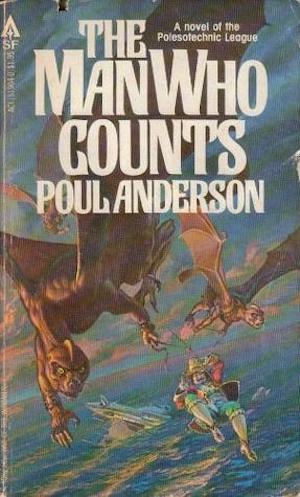
Marooned on the giant world Diomedes by an assassin’s bomb, stalwart engineer Eric Wace is accompanied by Lady Sandra, whose social connections are of no use on the alien world, and the Falstaffian master trader Nicolas van Rijn, a man so lovable that a rival tried to blow him up. Wace might well believe himself to be the key player in the struggle for survival that ensues. In fact, the political situation into which the humans have dropped is fraught and it will be the gleefully amoral van Rijn’s talent for quick talk and double-dealing that makes the merchant the man who counts.
As documented in novels and short stories by Anderson, van Rijn (later assisted by David Falkayn) spends his career treating official regulations as minor impediments to be ignored or worked around as needs be. It’s probably for the best that he (probably) expires of old age before the consequences of van Rijn and his Polesotechnic League chums’ bold decisions descend on Earth in the form of League-armed barbarian hordes.
Norstrilia by Cordwainer Smith (1975)
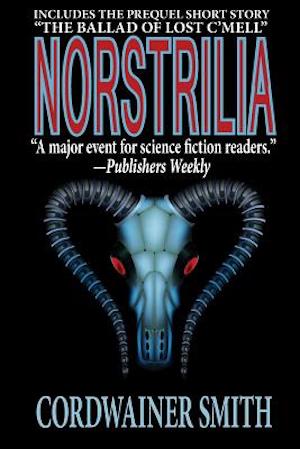
Facing a choice of deaths should he remain on his native world, Rod McBan pursues an ambitious computer-guided investment strategy, one that leaves him the sole owner of Old Earth. Journeying to Earth has allowed Rod to escape Norstrilia’s eugenic laws, not to mention a homicidal acquaintance. The cost is becoming thoroughly entangled in the complex affairs of an ancient, decadent world. These are circumstances which the rustic oligarch is ill-prepared to deal.
Thanks to Norstrilia’s monopoly on life-extending stroon, every citizen of the planet is fantastically rich. Thanks to the twenty million percent import duty on all luxury goods, most Norstrilians do not benefit directly from this. The goal is to avoid wide-spread affluenza and (unlike many fictional regulations) this one succeeds in its purpose. Every Norstrilian lives their life in austere virtue… except for the ones euthanized by the state for violating the aforementioned strict eugenic laws.
Dark Dance by Tanith Lee (1992)
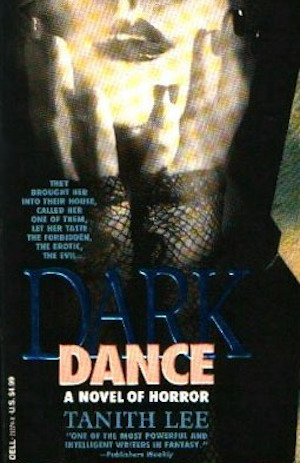
Having been liberated from an overbearing mother by her mother’s death, would-be hermit Rachaela is unpleasantly surprised to discover that she has a plethora of relatives of whom she was previously unaware. Reluctantly accepting an invitation to visit, Rachaela experiences life in the bosom of the Scarabae clan (known for their cosseted luxury). She also discovers other familial eccentricities that she would have been happier to avoid.
Of the sixty-one works by Lee I read during my Year of Tanith Lee, forty-five featured absent mothers and thirty-eight absent fathers. The explanation behind this cavalcade of orphans is obscure. However, works like Dark Dance prove that losing one’s family is by no means the worst thing that can happen to a Lee protagonist. The unlucky ones find their families.
Mexican Gothic by Silvia Moreno-Garcia (2020)
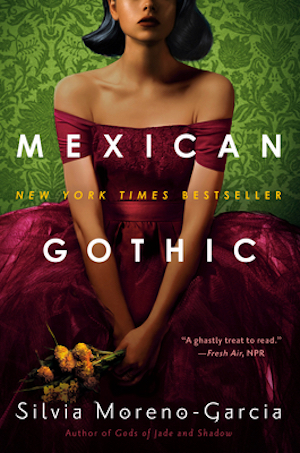
Dispatched to the isolated Doyle estate to check on the well-being of her cousin Cataline, well-born socialite Noemí Taboada discovers that her unfortunate cousin has married into a decreasingly rich clan of creepy, inbred English racists with a fancy for eugenics. Not to mention a yen for Mexican debutantes as inexhaustible as their need for liquid assets. This discovery is alarming enough, but there’s worse to come. The Doyles have an unseen patron, an entity with sinister intentions for Noemí.
As one might expect from the title, this is a gothic. It’s also hard science fiction of the biological variety. Just goes to show that genres are overlapping sets, not isolated populations. Don’t tell the Doyles, though: They like to think that things, or people, can be easily sorted into non-overlapping categories.
The Chosen and the Beautiful by Nghi Vo (2021)
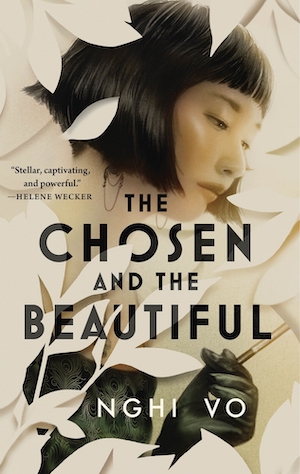
Rescued (or perhaps kidnapped) from her native Vietnam (or as her adopted family calls it, Tonkin), socialite Jordan Baker is not at all the sort of Asian her circle has in mind when they agitate for vigorous ethnic cleansing of 1920s America. With deportation a very real possibility, Jordon could use a distraction. Her ringside seat for the Daisy Buchanan / Tom Buchanan / Jay Gatsby triangle will provide ample distraction.
In this fantasy reimagining of The Great Gatsby, Gatsby’s illicit means include forbidden magic. Not that this additional tool helps him very much; his goals were badly selected.
It might seem a bit peculiar to readers that Jordan’s friends can simultaneously value Jordan’s friendship and support policies that will exile Jordan from the nation where she was raised. This is all part of their core ethos, which is that costs are for other people. To quote from The Great Gatsby:
They were careless people, Tom and Daisy—they smashed up things and creatures and then retreated back into their money or their vast carelessness, or whatever it was that kept them together, and let other people clean up the mess they had made.
Which is to say, it is all for the greater good.
***
Of course, these five works and their wealthy characters barely scratch the surface of the many wealthy characters deployed in science fiction and fantasy. It is quite possible I overlooked your favourites. Feel free to mention them in the comments, which are, as ever, below.
In the words of fanfiction author Musty181, four-time Hugo finalist, prolific book reviewer, and perennial Darwin Award nominee James Davis Nicoll “looks like a default mii with glasses.” His work has appeared in Interzone, Publishers Weekly and Romantic Times as well as on his own websites, James Nicoll Reviews (where he is assisted by editor Karen Lofstrom and web person Adrienne L. Travis) and the 2021 and 2022 Aurora Award finalist Young People Read Old SFF (where he is assisted by web person Adrienne L. Travis). His Patreon can be found here.










